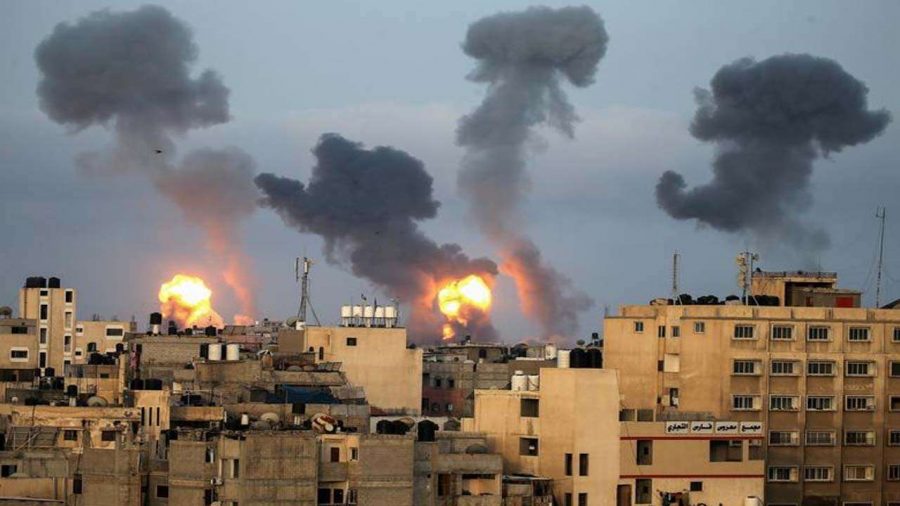Israeli-Palestinian Conflict
Students respond to the rise of global unrest.
In the most intense fighting in years, Israel has carried out hundreds of airstrikes in Gaza and against the rocket salvos of Palestinian militants, known as Hamas. Late Thursday this week, the Israeli military announced that air and ground forces were attacking the Gaza Strip.
For four nights, residents of Gaza City experienced intense, almost continuous air strikes from the north. The worst of the aerial bombardments lasted for half an hour (Washington Post).
The fighting in both air and towns has taken a toll on infrastructure in Israel and Gaza. Damage to power lines in Gaza has cut electricity completely. Israel’s Ben-Gurion Airport closed indefinitely to incoming flights. In global news reports, buildings are repeatedly shown as reduced to rubble and debris.
“I cannot even begin to imagine what these people are going through, waking up and realizing they don’t have a home any longer, or that their safety isn’t guaranteed,” said sophomore Perla Pingston. “It really puts into perspective the privilege of our own lives.”
Feeding the flame of violence, an increase in violence between the two groups has hinted at the possible conflagration of full Arab-Israeli civil war. After sunset Thursday, clashes between Jewish and Arab Israelis resumed in several cities.
Jewish nationalists were sighted dragging a man believed to be an Arab out of his car and beating him in the city Bat Yam. Arab rioters have set fire to synagogues, vehicles, and attacked police officers. Peace leaders have publicly condemned these actions and deemed them unjustifiable and immoral.
“It’s incredibly saddening, seeing these major conflicts we learn in history books now actually playing out in real life,” Pingston said.
The Wednesday of a normally joyous Eid al-Fitr holiday in Gaza was met with empty streets. There were no families bustling to pay each other holiday visits, no joyous cheers and merriment. Instead, smoke rose from Israeli bombings. Many rushed out their apartments, taking nothing with them but the clothes on their backs and the gratitude of remaining alive.
By the end of the air strike, 109 Palestinians, including 28 children, had been killed by Thursday night. 621 more had been wounded (Gaza Health Ministry).
“When they learn about these historical events in the future, the casualties will only be statistics,” said sophomore Mia Thomas. “But these are human lives being taken by the minute. There must be a day when we figure out a way to live in peace, not separated, but together.”





